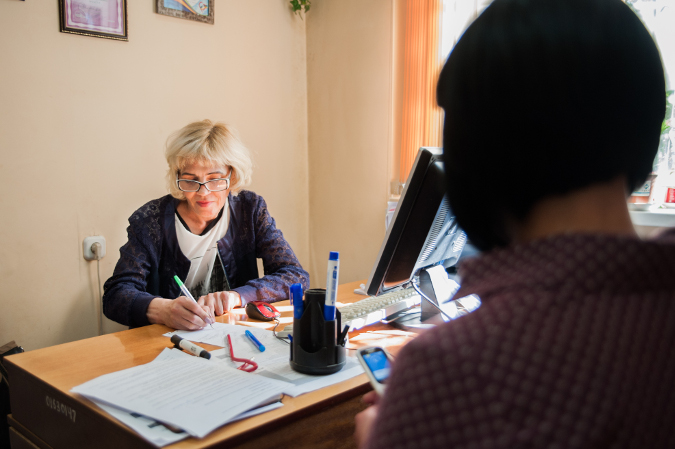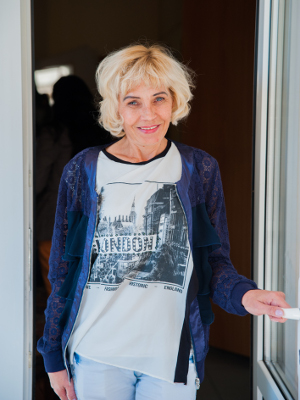A street lawyer with HIV finds meaning for herself helping others
A former drug user once jailed, Natalia Minayeva now helps other women on behalf of the Eurasian Harm Reduction Network.Date:

“My name is Natalia Minayeva, I am a 47- year old former drug user. Twenty years ago I discovered that I was HIV-positive. My first thought was that I was going to die. At that time, there wasn’t much information about HIV, just unconfirmed rumours and misinformation. Even worse, there was no respect for those with HIV. I still remember when paramedics came to my place and took blood from all my relatives in case they too were infected.
“Fortunately, I have a very trusting relationship with my parents. When my mother found out that I was HIV-positive, she asked me for a syringe to swap blood so she could be infected in solidarity with me.
“Two years after my diagnosis, I ended up in prison in the so-called ‘AIDS barracks’. I was the first such prisoner in this special place in the penal colony where they would send everyone with HIV. People were scared of us. We were separated from the others and everyone and were perceived as dead men walking. Fellow inmates felt sorry for us, but the staff were afraid to talk to us. Even today such behaviour is common.
“I met Elena Bilokon, director of the Kazakhstan Network of Women Living with HIV, who came to our prison for monitoring and told us about her network. She offered me a job immediately after I was released. I was like no one else because I had experienced first-hand the problems and difficulties of living with HIV as well as the challenges of serving time in the penal colony as an HIV-positive inmate. I could relate to other women in the same situation.

“I started as an outreach officer. I now help women in prison and those who have been released. I advise them, help them integrate into society and approach relevant state bodies on their behalf to provide social support. We send these women to the AIDS centre and job centres, and help them with paperwork to apply for benefits. Women come to our office for advice and we also offer phone consultations to those from different regions of the country.
“My greatest pride is that I studied to be a street lawyer and now work as one at the Eurasian Harm Reduction Network. There’s only one other street lawyer in our country besides me. As a street lawyer I help women with legal issues and represent them in court. The network also helps drug users and refers them to replacement therapy.
“This work is the meaning of my life. It gives me strength and the ability to help women who are in a difficult situation, as I once was. My life has changed and taken on a new meaning.
“Through training under UN Women’s Gender Equality within the HIV and AIDS response project funded by UNAIDS and the Unified Budget, Results and Accountability Framework, I’ve enhanced my knowledge and gained public speaking and leadership skills, both so important to my work. I could never have imagined that my life would have such meaning.”
Since 2001, HIV prevalence in Kazakhstan has increased by 37%, making the region home to the world’s most rapidly expanding epidemic. Women now account for 42.2% per cent of new HIV infections in Kazakhstan. The UN Women Multi-Country Office in Kazakhstan, which serves Central Asia, has worked on the gender dimensions of HIV/AIDS in the region since 2003. One of the key directions of this work is capacity building of the national network of women living with HIV in Kazakhstan and Tajikistan.